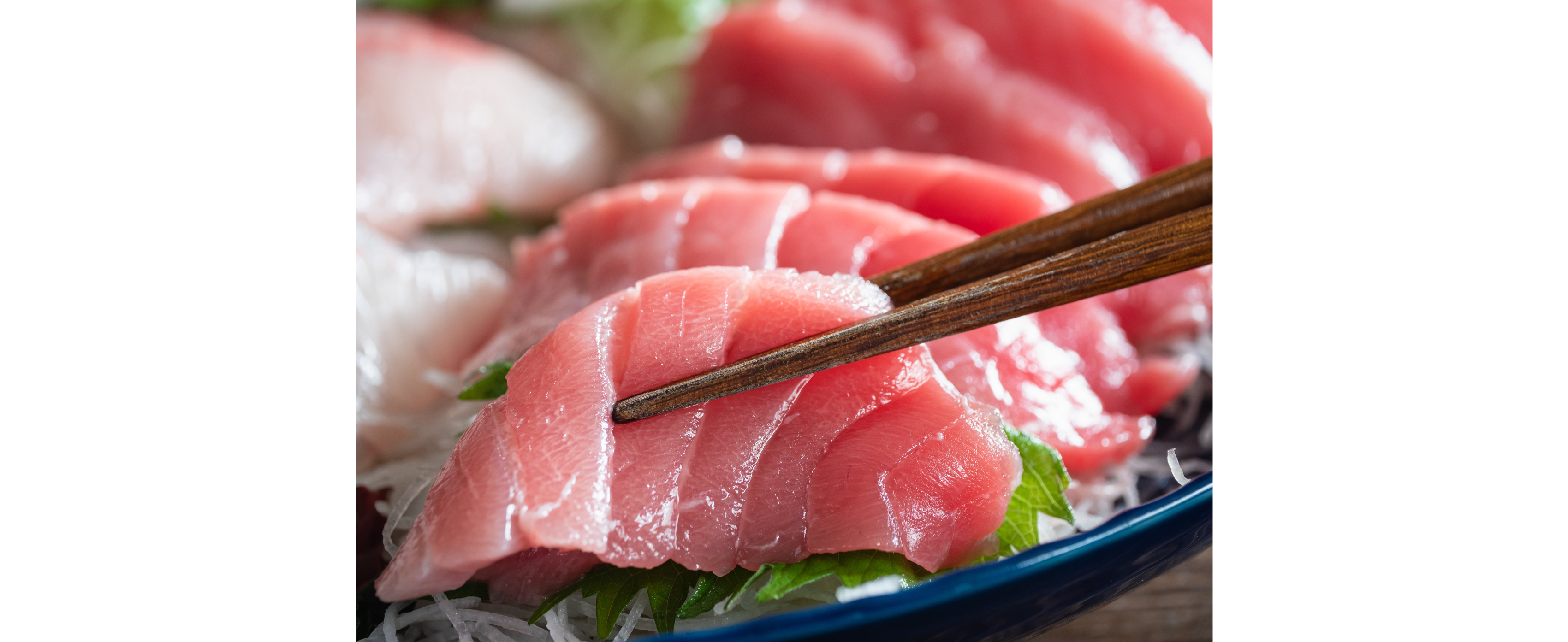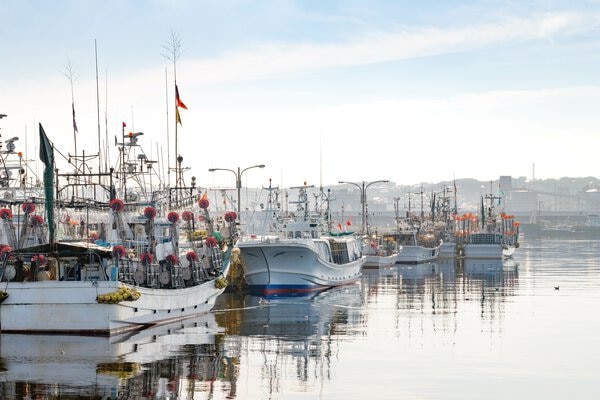
Urgently need to improve catch reporting and traceability system - In response to unreported catch of bluefin tuna in Ooma, Aomori
My name is Wakao Hanaoka, the CEO of Seafood Legacy.
There is currently a great deal of attention focused on the arrest of the presidents of two wholesalers for involving in improper reporting of a portion of their purchased bluefin tuna in Ooma, Aomori Prefecture, to the prefectural government.
Japan's loss of international credibility and its implications
The international committee, ISC reported their stock assessment result pointed out that the stock of bluefin tuna depleted to two to four percent compared to the estimated virgin stock level of the catch limit for bluefin tuna, which is currently the subject of an ongoing global international stock recovery plan, have been strictly regulated by regional fisheries management organizations (RFMOs), with each member country or region setting its own limits. Accordingly, Japan asked RFMOs to increase their catch quotas, as it is highly likely that bluefin tuna stocks will reach their historical average, which is the provisional target, leading to an agreement in 2021.
However, this recent incident has brought to light Japan's inadequate auditing system for the reporting and management of bluefin tuna catches, and the Minister of Agriculture, Forestry, and Fisheries expressed concern at a press conference saying, "We are losing international credibility.”
Japan's loss of international credibility as a key player in the effort to recover bluefin tuna stocks will make it difficult for us to take a leadership role at international conferences, weaken our ability to convince others in international negotiations, and undermine the efforts of businesses and governmental agencies that have been earnestly working to recover the stock. Leaving the lack of management unchecked any longer poses immeasurable risks to the industry, and a fundamental solution is required as soon as possible.
The government needs to implement a catch-reporting and traceability system that prevents fraudulent activities
A seafood processing company located in Shizuoka City, which purchased tuna from the two wholesalers and subsequently sold it on the market, said "We purchased the tuna from the two wholesalers based on the certificates of origin they provided to us. We have no choice but to trust the information given to us by the wholesalers, and we sincerely apologize for any inconvenience caused."
There is currently no robust system in Japan for ensuring accurate catch reporting and traceability, nor is there an adequate auditing system in place to ensure fairness in the distribution of seafood. I believe this is the main reason why this incident was not prevented.
In the new Fisheries Law, which was revised for the first time in 70 years to promote sustainable use of fishery resources and went into effect in 2020, the roadmap until March 2024 includes the promotion of specific efforts to develop a system to collect catch and other information digitally. However, this incident has revealed that even a basic information collection system, let alone a digitalized one, has yet to be established.
In addition, the Act on Ensuring the Proper Domestic Distribution and Importation of Specified Aquatic Animals and Plants, which came into effect last December, is aimed at preventing imported seafood caught by IUU (illegal, unreported, and unregulated) fisheries from entering the domestic market.
However, when it comes to seafood produced in Japan, the act only targets the distribution of products caught by unauthorized poachers, which highlights the fact that even if bluefin tuna was included in the law's list of covered species, there is simply no recourse against illegal fishing and unreported fishing conducted by licensed fishermen, as is the case here.
As someone who was involved in the drafting of both laws, including serving as a member of the expert working groups, I am deeply saddened by the current situation and keenly aware of the need for the government to immediately propose measures to establish a robust catch reporting and traceability system that ensures objectivity and an adequate auditing system, which would include redrafting the road map in the new Fisheries Law and amending the act.

Businesses and industry organizations must actively contribute to improvements
The seafood industry is dependent on wild resources, and the failure to ensure sustainability means the collapse of its business model. Furthermore, international trends are shifting toward a "nature-positive" approach, which aims to curb the negative impacts of economic activities on ecosystems and restore natural capital, including biodiversity.
Seafood Legacy has received a number of inquiries, particularly from major Japanese end-user distributors and their key suppliers, who want to eliminate seafood originating from IUU fisheries from their supply chains. In addition, columns in our online media, Seafood Legacy Times, “How does the industry view the enforcement of the Act on Ensuring the Proper Domestic Distribution and Importation of Specified Aquatic Animals and Plants? (only in Japanese) “ introduces many comments on the significance of the act and the challenges ahead from domestic stakeholders who are driving sustainability in the seafood industry.
In response to this incident, the director of the Fisheries authorities in Aomori Prefecture stated, "We would like to request the government to establish a system that allows a third party to monitor the entire production process, from tuna catches to distribution", underscoring the need for a fundamental restructuring of the production structure in the Japanese seafood industry.
Business and industry organizations are expected to actively participate in strengthening the management and distribution of fishery resources in pursuit of sustainability by, for example, encouraging the establishment of fraud-proof catch reporting and traceability systems and building a cooperative system that encompasses all participants in the industry and the supply chain to achieve this goal.
What has come to light this time is just the tip of the iceberg. It goes without saying that the more time is spent on raising excuses as to why nothing can be done, the longer the solutions will be delayed, the muddier the waters will become, and the more difficult it will become to surface.
Shaping a future Japanese seafood industry and fish-eating culture that we can be proud of on the global stage
We at Seafood Legacy believe that Japan, which has risen to become one of the world's largest fishing nations and fish-eating culture, should become a frontrunner in the pursuit of environmental sustainability and social responsibility in the seafood industry in the Asian region and beyond.
Fishery resources are an irreplaceable asset for mankind that is shared across national borders and generations. If the Japanese seafood market can successfully transform itself into one that pursues environmental sustainability and social responsibility, and if the domestic seafood economy and its local communities can become prosperous again, it will open the way for full-scale entry into the growing international market, which is conditional on ensuring environmental sustainability and social responsibility, and become capable of providing a sustainable source of high-quality protein to the international community that is suffering from food shortages, ultimately making Japan a beacon of hope for the future.
Such is the basis for the survival and growth of the Japanese seafood industry as we envision it. international credibility in the management and distribution of fishery resources in pursuit of sustainability should become a core value of Japan's seafood industry.
I hope that this incident will serve as an opportunity to begin steering our industry toward a solution that will resolve the root cause of this issue.
*1 https://news.yahoo.co.jp/articles/82ae88ae154e9329b819898c2348c777c6de841c
*2 https://news.yahoo.co.jp/articles/4d78555170804c662331260abf61660a4d0b1e57
*3 https://www.jfa.maff.go.jp/j/press/kanri/200930.html
*4 https://news.yahoo.co.jp/articles/f45796a2153c50ff8ff4813ece8bf5ccb5365b71





